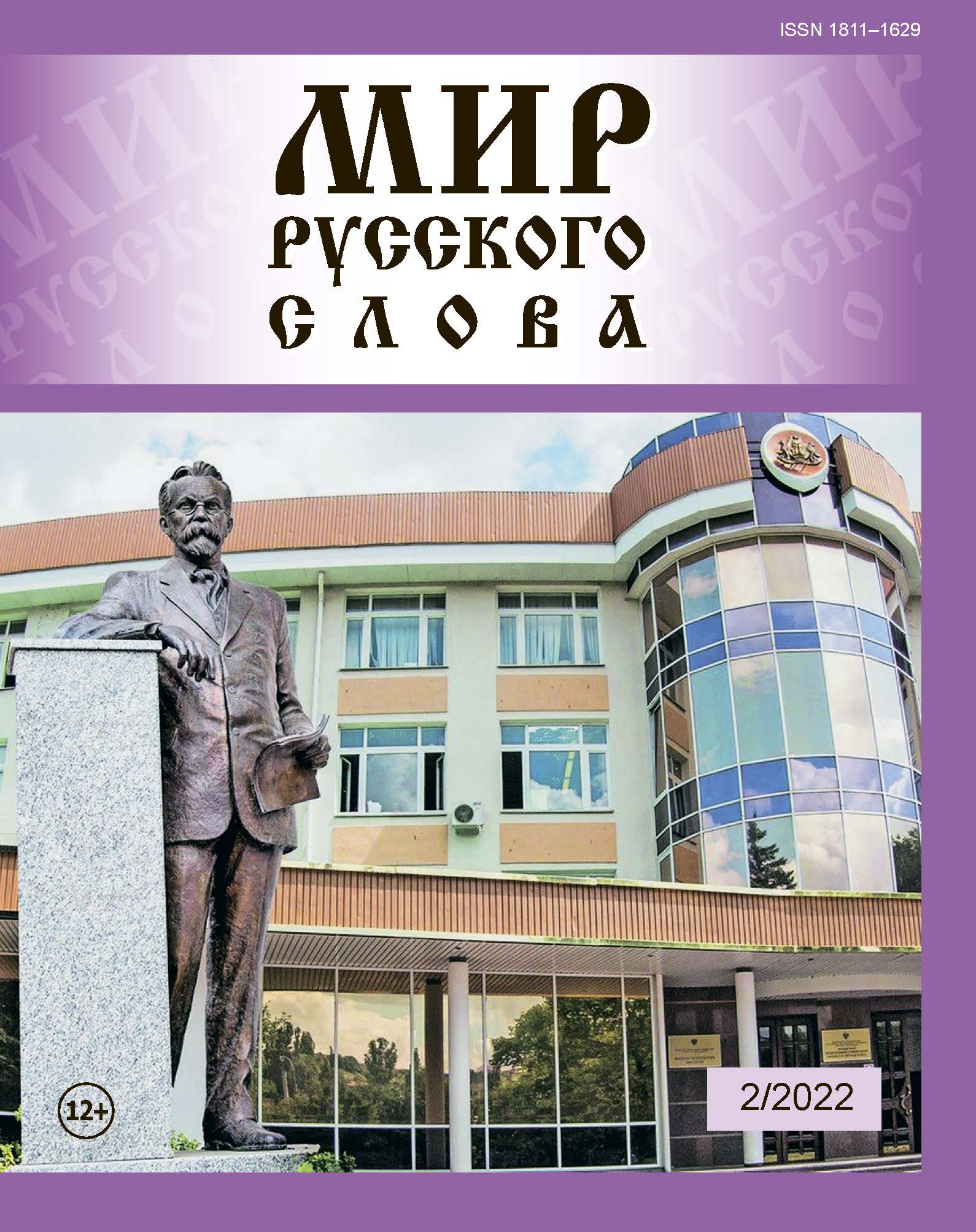Ways of expressing “approximate age” in Russian: Euphemisms and approximators
DOI:
https://doi.org/10.24412/1811-1629-2022-2-34-40Abstract
The article discusses the linguistic ways of implementing the category of approximation in the nomination of the approximate age of a person. Based on the data of the National Corpus of the Russian Language, the authors reveal both the most typical and very original forms of expressing the semantics of approximation in the nomination of age, used in the Russian literary text of the 19th–20th centuries. Multi-level language means of expressing the approximate age of a person are described and systematized according to a number of characteristics: gender, age, social, and some others. Stable speech formulas are indicated, which are very frequent in the texts of Russian fiction (“tender age”, “Balzac age”, “mature years”, etc.), examples of both “partial” and “absolute” approximateness in expressing age are given. Attention is drawn to “uncertainty” as a special case of approximation in the nomination of a person's age and its dual speech interpretation in terms of a literary text, both with positive and negative connotations. The authors also analyze dependence of the use of a specific formula on the pragmatic characteristics of the speech situation, considering, for example, the communicative situation with the absent and present object of the nomination. The article shows a need to take into account the type of verbal communication (interview, monologue, dialogue, etc.), cultural and historical background (acting environment, everyday communication, secular dialogue of the 19th century, etc.), and the personality of the speaker. The euphemistic function of most nominations of the approximate age of a person is noted, stylistically marked speech formulas are indicated. Th e authors attempt to distinguish between the categories of approximation (as a means) and euphemization (as a goal) in relation to a specific speech situation. It is emphasized that the majority of such nominations are motivated by the rules of the culture of speech behavior accepted in society at a given time and in given sociocultural conditions.
Keywords:
approximation, approximators, nomination age, communication culture, Russian speech etiquette
Downloads
Downloads
Published
How to Cite
Issue
Section
License
Articles of "The World of Russian Word" are open access distributed under the terms of the License Agreement with Saint Petersburg State University, which permits to the authors unrestricted distribution and self-archiving free of charge.




